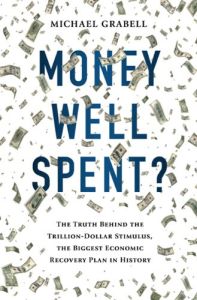Join getAbstract to access the summary!

Join getAbstract to access the summary!
Michael Grabell
Money Well Spent?
The Truth Behind the Trillion-Dollar Stimulus, the Biggest Economic Recovery Plan in History
Public Affairs, 2012
What's inside?
The 2009 stimulus – what went right and what went wrong
Recommendation
The economy is improving, but the recovery is not as robust as it could and should have been, contends journalist Michael Grabell. The biggest economic recovery act in history – with an estimated cost of more than a trillion dollars – brought various economic solutions into collision with Washington, DC’s tough political realities, producing middling results. Grabell argues that taxpayers got their money’s worth because the act saved millions of jobs and forestalled another Great Depression. But political miscalculations and poor management hobbled what could have been an even stronger recovery. Whether you’re a Republican or a Democrat, a fan of Barack Obama, a member of the Tea Party or an overseas onlooker marveling at the swirl of American politics, this detailed, intelligent overview can help you understand exactly what the American Recovery and Reinvestment Act accomplished and failed to accomplish. getAbstract recommends Grabell’s reporting to anyone who participates in America’s slowly reinvigorating economy or has felt the impact of its ups and downs.
Summary
About the Author
Michael Grabell is a reporter for ProPublica, a nonprofit investigative journalism site. His work has appeared in USA Today, The Dallas Morning News and Salon.


















Comment on this summary